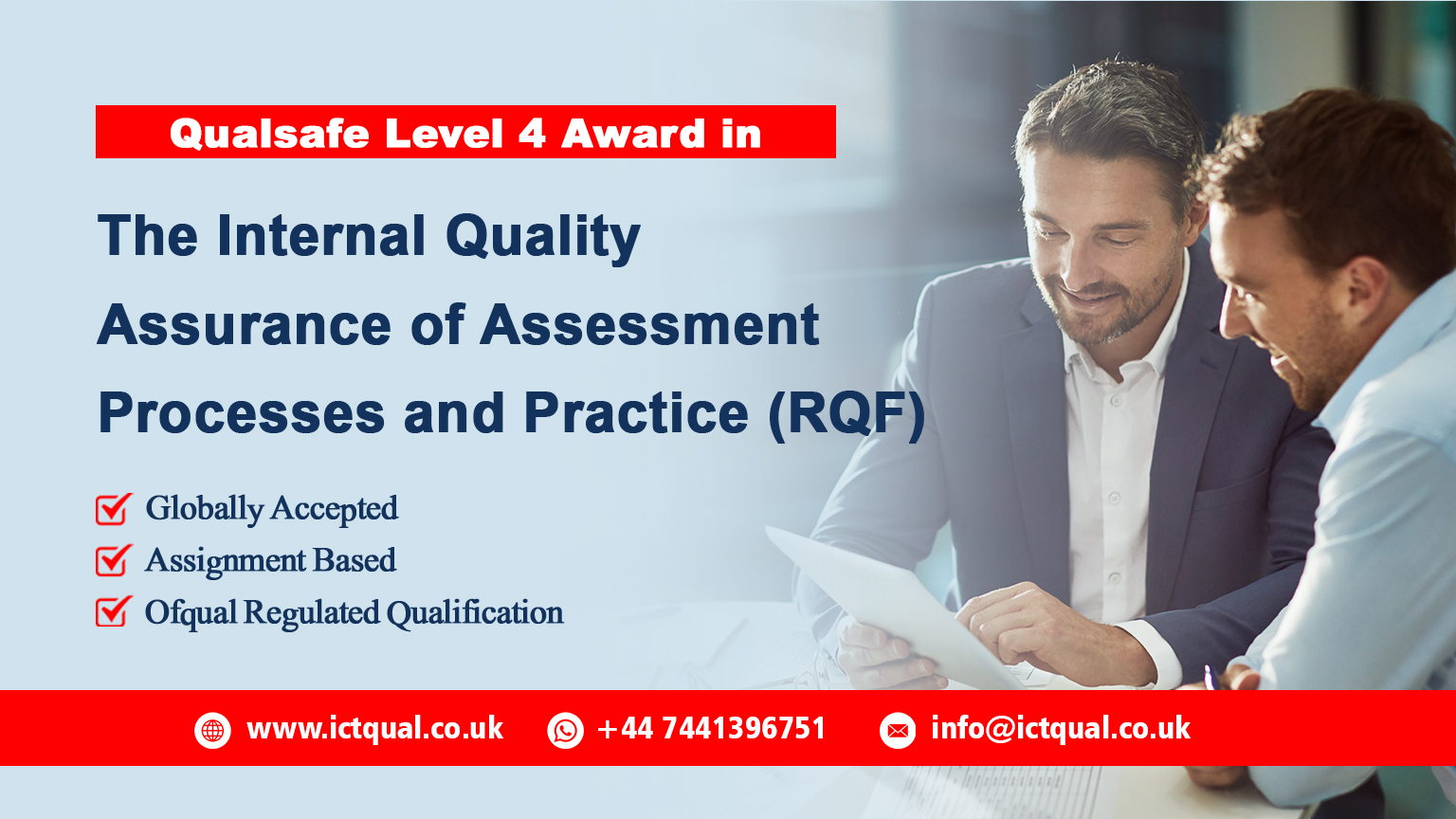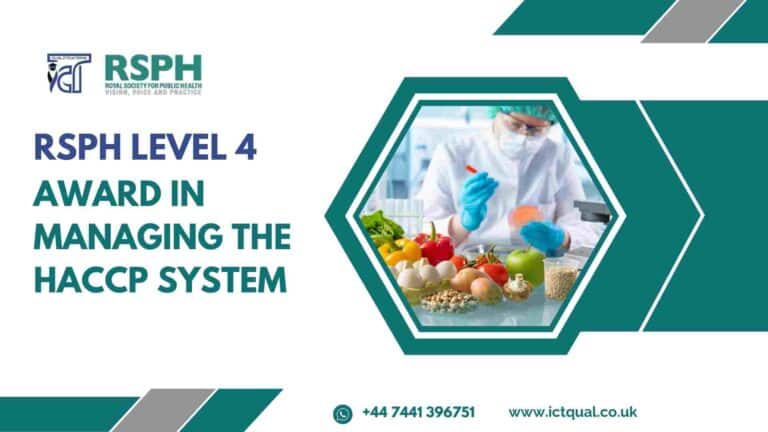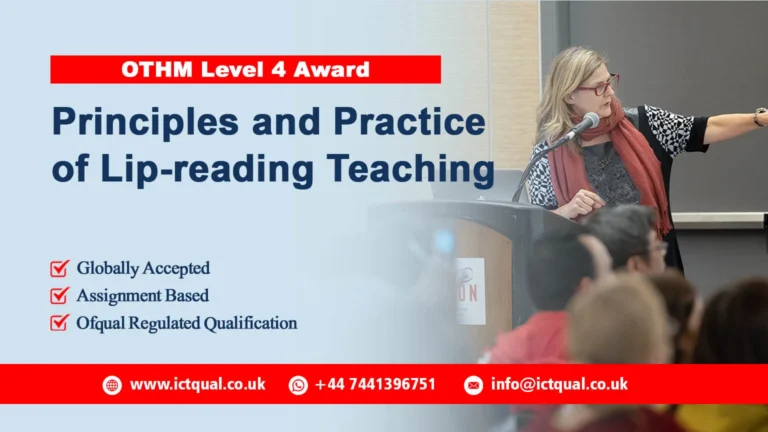The Qualsafe Level 4 Award in the Internal Quality Assurance of Assessment Processes and Practice (RQF) is a highly regarded qualification designed for individuals who want to develop their skills in overseeing and ensuring the quality of assessment practices. This course is perfect for those who aspire to become internal quality assurers (IQA) or are currently working in roles responsible for maintaining assessment standards within education, vocational training, or workplace settings.
Through this course, learners will gain a deep understanding of the principles and practices of internal quality assurance, learn how to monitor the effectiveness of assessment processes, and ensure compliance with industry and regulatory requirements. The qualification focuses on developing the expertise needed to evaluate assessment plans, provide support and guidance to assessors, and implement effective quality assurance systems. Recognized by employers and aligned with the Regulated Qualifications Framework (RQF), the Qualsafe Level 4 Award is ideal for those seeking to enhance their career prospects in quality assurance and contribute to the continuous improvement of assessment practices.
This course is essential for individuals looking to take on quality assurance roles in a range of sectors, including education, vocational training, and professional development.
The Qualsafe Level 4 Award in the Internal Quality Assurance of Assessment Processes and Practice (RQF) is a highly regarded qualification designed for individuals who want to develop their skills in overseeing and ensuring the quality of assessment practices. This course is perfect for those who aspire to become internal quality assurers (IQA) or are currently working in roles responsible for maintaining assessment standards within education, vocational training, or workplace settings.
Through this course, learners will gain a deep understanding of the principles and practices of internal quality assurance, learn how to monitor the effectiveness of assessment processes, and ensure compliance with industry and regulatory requirements.
The Qualsafe Level 4 Award in the Internal Quality Assurance of Assessment Processes and Practice (RQF) has
2 units Trainee IQAs are required to complete in order to achieve the qualification. Qualification unit 1 has 45 GLH, Credit value of 6, Qualification unit 2 has 45 GLH and Credit value of 6.
Qualification Unit 1
| Sr# | Unit Title |
|---|---|
| 1 | Understand the context and principles of internal quality assurance |
| 2 | Understand how to plan the internal quality assurance of assessment |
| 3 | Understand techniques and criteria for monitoring the quality of assessment internally |
| 4 | Understand how to internally maintain and improve the quality of assessment |
| 5 | Understand how to manage information relevant to the internal quality assurance of assessment |
| 6 | Understand the legal and good practice requirements for the internal quality assurance of assessment |
Qualification Unit 2
| Sr# | Unit Title |
|---|---|
| 1 | Be able to plan the internal quality assurance of assessment |
| 2 | Be able to internally evaluate the quality of assessment |
| 3 | Be able to internally maintain and improve the quality of assessment |
| 4 | Be able to manage information relevant to the internal quality assurance of assessment |
| 5 | Be able to maintain legal and good practice requirements when internally monitoring and maintaining the quality of assessment |
This course is designed for:
Aspiring Internal Quality Assurers (IQAs): Those who want to take on roles responsible for overseeing the quality of assessments in educational institutions, vocational training centers, or workplace environments.
Experienced Assessors: Assessors who want to move into a quality assurance role and further develop their understanding of how to monitor and maintain high standards of assessment practices.
Quality Assurance Professionals: Individuals already working in internal quality assurance roles who want to formalize their skills with a recognized qualification and stay up-to-date with current best practices and regulatory requirements.
Training Managers and Coordinators: Professionals overseeing training programs who need to ensure the quality and consistency of assessment processes and want to implement effective quality assurance systems.
Educational Supervisors: Teachers, trainers, or supervisors involved in the internal quality assurance process who want to enhance their ability to support and guide assessors and ensure compliance with industry standards.
Workplace Learning and Development Coordinators: HR and training personnel responsible for ensuring that workplace assessments meet regulatory and internal standards, and who need the skills to evaluate and improve assessment processes.
Here are the outcomes for each of the listed study unit:
Understand the Principles and Practices of Internal Quality Assurance: Gain in-depth knowledge of the key concepts, principles, and regulatory requirements that underpin effective internal quality assurance (IQA) processes.
Plan and Maintain Internal Quality Assurance Systems: Learn how to design and implement robust IQA systems that ensure assessments are carried out to the required standards, contributing to the consistency and reliability of learner evaluations.
Monitor the Quality of Assessment: Develop the skills to systematically monitor the quality of assessment practices, ensuring that assessors are following correct procedures and meeting regulatory guidelines.
Evaluate and Support Assessors: Learn how to evaluate the performance of assessors, providing constructive feedback, guidance, and support to help them improve their assessment methods and outcomes.
Ensure Compliance with Legal and Regulatory Frameworks: Understand how to maintain compliance with legal, regulatory, and sector-specific requirements within the assessment and quality assurance process.
Conduct Standardization Activities: Gain the ability to lead and participate in standardization activities, ensuring consistency in assessment decisions and promoting best practices among assessors.
Maintain Accurate Records and Reports: Learn how to document IQA activities effectively, keeping comprehensive records and producing reports that demonstrate the quality and effectiveness of assessment practices.
Improve Assessment Practices: Develop the ability to identify areas for improvement in assessment processes and make informed decisions to enhance the quality of learning and development programs.







